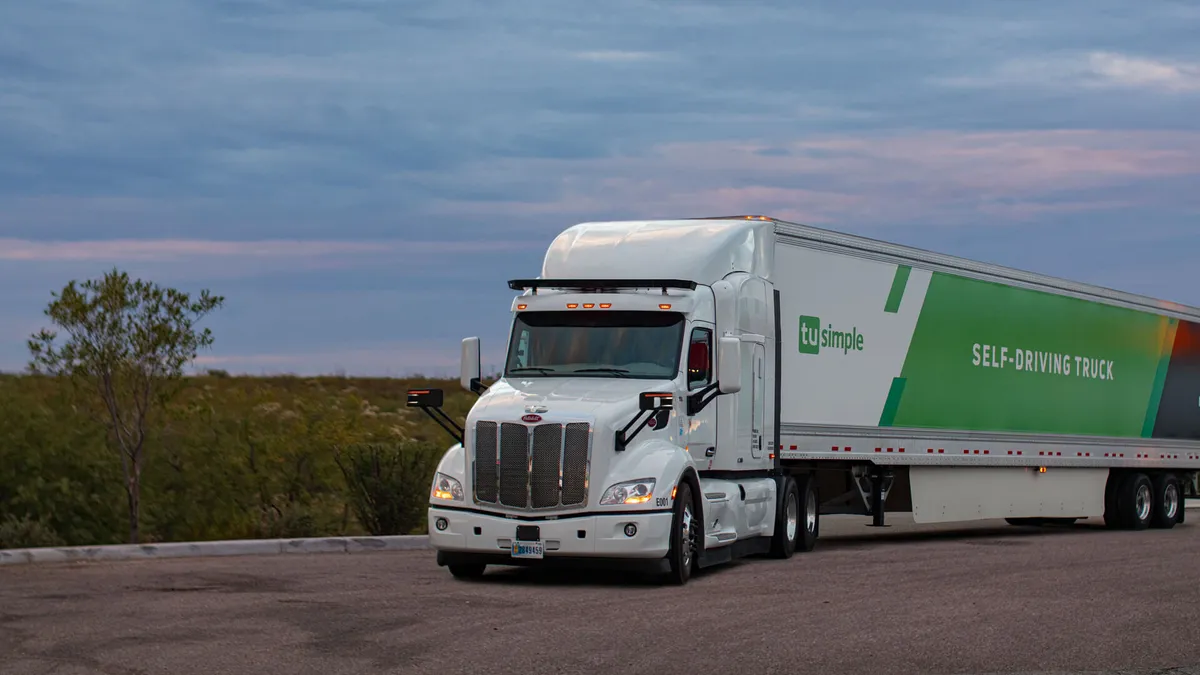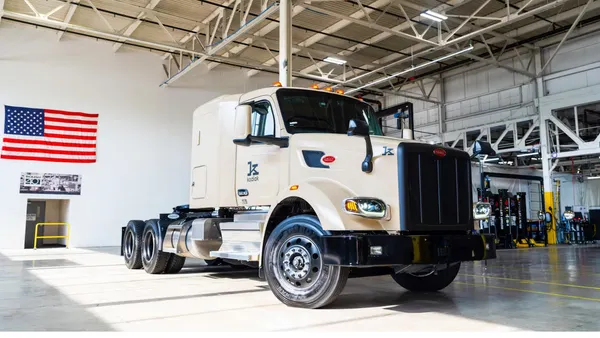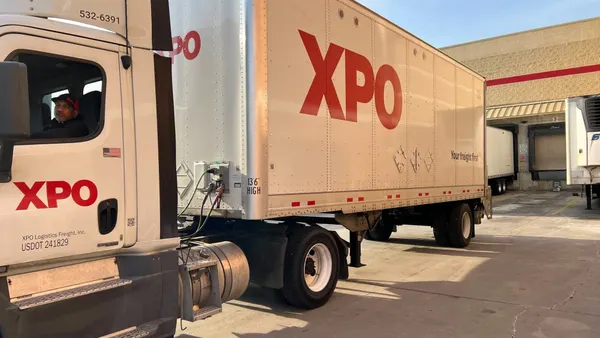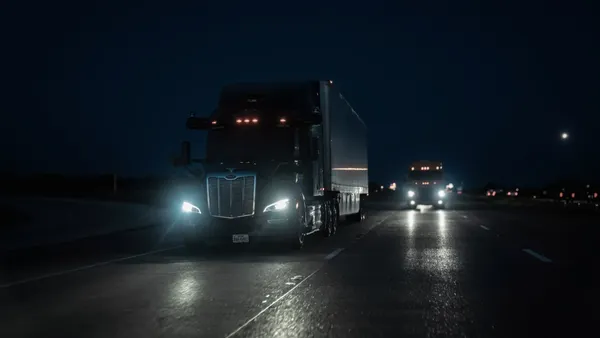Dive Brief:
- TuSimple, an autonomous trucking technology company, said it has partnered with ZF, an automotive supply company, to develop and commercialize products for autonomous trucks. The partnership will start in April, and will include the North American, European and Chinese markets.
- TuSimple and ZF will develop cameras, LiDAR, radar, steering and ZF's automotive-grade central computer ZF ProAI, according to a news release. ZF will support TuSimple's pre-production driverless autonomous system and will serve as the default supplier for the company's commercialized vehicles.
- The company's ultimate goal, TuSimple CFO Cheng Lu told Fleet Owner last October, is to get drivers "out of service," meaning they could be asleep in the cab or otherwise disengaged while the truck is running, and eventually "out of the equation" entirely.
Dive Insight:
Autonomous truck driving and related technology are growing trucking interests, so the question follows: How can companies supply and mass produce autonomous technology to the industry?
Chuck Price, TuSimple chief product officer, said in a news release that the ZF partnership will help TuSimple bring its trucks to market. As part of the partnership, ZF will contribute engineering support to validate and integrate TuSimple's autonomous system into the vehicle.
Torsten Gollewski, executive vice president of ZF's Autonomous Mobility Systems, said in a news release that a key success factor for virtual-driver software is to ensure the system is based on an automotive grade level, including component development and production. The combination of the ZF automotive system and TuSimple's virtual driver software will create the first commercial-ready automotive grade autonomous truck technology platform, Gollewski said.
But the growing autonomous trucking sector has had its casualties. In mid-March, Starsky Robotics announced it was closing after five years of development. Founder Stefan Seltz-Axmacher, on a Medium post, said "there are too many problems with the AV industry to detail here: the professorial pace at which most teams work, the lack of tangible deployment milestones, the open secret that there isn’t a robo-taxi business model, etc. The biggest, however, is that supervised machine learning doesn’t live up to the hype. It isn’t actual artificial intelligence akin to C-3PO, it’s a sophisticated pattern-matching tool."
TuSimple said it wants to transform the U.S. trucking industry by enhancing safety, increasing efficiency and significantly reducing operating costs with autonomy. The company operates a fleet of more than 40 autonomous trucks, has 18 contracted customers and makes 20 autonomous trips between Arizona and Texas for companies like UPS every week, according to the news release.
Currently, TuSimple's trucks operate at Level 4 autonomy, meaning they can navigate a variety of environments, weather and safety conditions without the assistance of a driver. However, legal requirements in most states mandate a driver be present in the vehicle during all operations. The company plans to start driverless operations in 2021.











